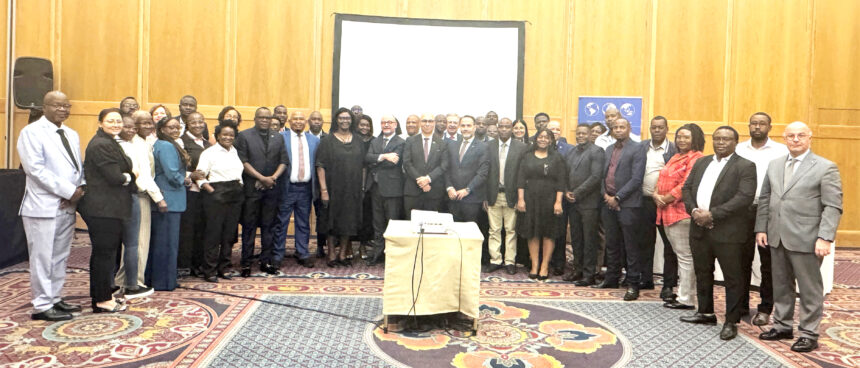Namibia’s law enforcement agencies and the office of the Prosecutor General took a significant step forward in the fight against financial crime.
A two-day workshop, titled ‘Turning Financial Intelligence into Evidence – Addressing Serious, Standalone and Complex Money Laundering Cases’, was hosted this week.
The event brought together key institutions involved in financial investigations and prosecutions. Organised by the European Union-funded Anti-Money Laundering and Counter-Terrorist Financing (AML/CFT) Global Facility project in collaboration with Namibia’s Financial Intelligence Centre, the workshop focused on strengthening cooperation and addressing systemic challenges in detecting, investigating and prosecuting money laundering cases.
Collaboration and information-sharing were crucial in combating money laundering and terrorist financing.
However, financial crime investigations often faced barriers such as legal constraints, technological incompatibilities and procedural inefficiencies that hindered the effective transformation of financial intelligence into actionable courtroom evidence.
The workshop provided a platform to tackle these issues and enhance coordination between the Financial Intelligence Centre, law enforcement and the office of the Prosecutor General.
Delivered by esteemed judges, prosecutors and law enforcement experts from France, Seychelles and Spain, the workshop aimed to bridge gaps in inter-agency cooperation and equip participants with best practices in financial crime prosecution.
The authorities of Namibia delivered the presentation on the state of play in the country and the plans.
Federico Berna, EU Head of Cooperation, highlighted the importance of this initiative, stating: “Fighting money laundering and terrorist financing is crucial for the stability and integrity of our financial systems. These illicit activities divert resources from productive uses, undermine market integrity and threaten the stability of financial systems”.
He said the workshop was specifically tailored for the institutions within the law enforcement chain.
Berna expressed confidence in supporting Namibia’s efforts to exit the FATF grey list through technical assistance.
“We believe that with dedicated effort and cooperation, Namibia can achieve this goal just as seven other countries supported by the EU Global Facility have successfully exited the grey list,” he stated.
Bryan Eiseb, director of the Financial Intelligence Centre Namibia, who was very pleased with the training, said “financial Intelligenceis a critical tool in understanding how money moves and identifying money laundering as well as the patterns behind complex financial crimes, which is marred by the obscurity of intertwined corporate structures”.
He added that financial intelligence often comes from various sources and should be used for conducting parallel financial investigations to identify and recover the proceeds of financial crimes.
This workshop formed part of the EU Global Facility’s ongoing technical assistance to Namibia, reinforcing the country’s AML/CFT framework and ensuring compliance with Financial Action Task Force (FATF) recommendations.
It built on previous capacity-building initiatives conducted both in Windhoek and online, also covering topics such as beneficial ownership.
The EU Global Facility’s flagship Intelligence into Evidence workshops have been successfully implemented in jurisdictions worldwide, including Jordan, Zambia, Turkiye, Seychelles, South Africa, the United Arab Emirates, Bolivia and Argentina, equipping partner nations with the necessary tools to tackle financial crime effectively.
Established by the European Commission in 2017, the EU Global Facility on AML/CFT supports partner countries in strengthening their anti-money laundering and counter-terrorist financing frameworks.
Aligned with EU policies, FATF recommendations and United Nations Security Council resolutions, the project enhances institutional capacity, promotes national and international cooperation, and ensures compliance with international standards.
Financed by the European Commission’s Service for Foreign Policy Instruments (FPI), the project is implemented by Expertise France in partnership with the GIZ international services.



